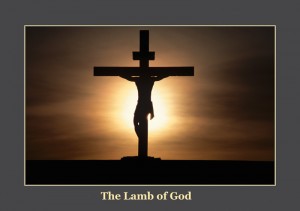
Evangelical Essentials (Part Three)
We are hard. We are selfish. We are blind. We are self-absorbed. What hope do we have for real change in our character, choices, and lives? Can someone or something really change me? Yes, we can change, but not by our own power and ability. God can and will change us from bad people to good. Not only does God desire this change in our lives, he requires that we undergo a complete re-creation of our hearts.
How does God change us? How can God take a bad person like me and change me into good person? Â He gives us new hearts (Ezek. 36:24-28, Jer. 31:33-34, 32:40-41). The Cross melts our hearts by his great love, his grace pours out a salvation we do not deserve and his Spirit transforms us by making us new creations (2 Cor. 5:17).
Do we really believe that the Cross can change lives? Do we believe that the crucified Christ can meet anyone in their sin, selfishness, and pride and conquer their hearts by his great grace, mercy, and love? The answer must be yes. The Apostle Paul declares,”For I am not ashamed of the gospel of Christ, for it is the power of God to salvation for everyone who believes (Rom. 1:16 NJKV). The Cross can change any heart, transform any life, break any addiction, and heal any pain.
As we look to Christ in faith, how does the Cross deliver us from our selfishness? Evangelicals appeal to the words of Jesus, “You must be born-again†(John 3:7). To be born-again is to receive a heart-change by the power of the Holy Spirit: a motivation transformation from selfishness to Christ-centeredness. This regenerative work is a ministry of the Holy Spirit:
In the new birth, the Holy Spirit unites us to Christ in a living union. Christ is life. Christ is the vine where life flows. We are the branches (John 15:1–17). What happens in the new birth is the supernatural creation of new spiritual life, and it is created through union with Jesus Christ. The Holy Spirit brings us into vital connection with Christ who is the way, the truth, and the life.
[John Piper, Finally Alive: What Happens When We Are Born Again (Geanies House, Fearn, Ross-shire, Scotland: Christian Focus, 2009), 32.]
He has washed us and given us new hearts: ones that hunger to love, serve, and please God. As a result, we are children of God; we are made new creations; cleansed, transformed, and regenerated by the Holy Spirit.
What happens in the new birth is not the improvement of your old human nature but the creation of a new human nature—a nature that is really you, forgiven and cleansed; and a nature that is really new, being formed in you by the indwelling Spirit of God.
[John Piper, Finally Alive, 37]
Our motivation is changed so that all we want to do is to please him (2 Cor. 5:9, Song 4:9, Zeph. 3:17). We do not want to say or do anything that will break God’s heart or cause his Holy Spirit to be grieved. The Cross has done this work in our hearts: we are now free from sin-consciousness, self-consciousness, and performance-consciousness. Regeneration occurs when we “confess with our mouths and believe in our hearts that God raised Christ from the dead†then and only then are we “justified†and “saved†(Rom. 10:9-10). This heart change occurs when we repent of our past sins and look to Christ to be our saviour. (Repentance and faith are the conditions of salvation and baptism is a condition of obedience.)
Repentance is is simple, but not easy; a change of mind and heart which affects my attitude and alters my conduct. Repentance is not turning inward, but turning around. It is the recognition that God is right and that I am wrong. I am wrong because I have broken God’s law; as a result, my selfish actions have wounded God’s heart and hurt others.
Faith is directed towards a person, Jesus. It is in fact a complete commitment to Jesus Christ involving not only an acceptance of what is offered, salvation and forgiveness, but a humble surrender to what is or may be demanded, his Lordship. The bent knee is as much a part of saving faith as the open hand. Faith is receiving what Christ for us on the Cross in the past and submitting to what Christ will do in our lives in the future.
Then Peter said to them, “Repent, and let every one of you be baptized in the name of Jesus Christ for the remission of sins; and you shall receive the gift of the Holy Spirit. For the promise is to you and to your children, and to all who are afar off, as many as the Lord our God will call.”
Acts 2:38-39 NKJV




